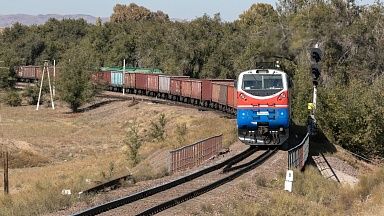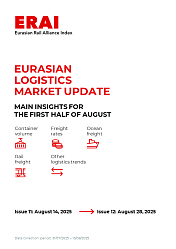The 91 per cent drop in Eastbound Silk Road train volumes via Małaszewicze resulted in 824 TEU transported towards China for the first half of the year. Though the Eastbound drop came as sharp as it could be, it did not necessarily impact the overall trade volume via China Europe trains as much as the Westbound volume drop did. The Westbound volumes in the first half year experienced around 8,000 TEU drop compared to last year.
Shifting Silk Road focus
One explanation for the volume drop at Małaszewicze could be the changing strategy and emphasis of Silk Road trains. This year, there is a destination shift for Silk Road trains departing from China, mainly attributed to the conflict in Ukraine and related sanctions imposed on Russia. For example, China Railways are promoting trains that end up in cities like Moscow and St. Petersburg in Russia, as well as Astana and Atkau in Kazakhstan. For example, Chinese forwarders have shared with RailFreight.com that in their operations, 80 per cent of international freight trains leaving China are directed to Russia.





